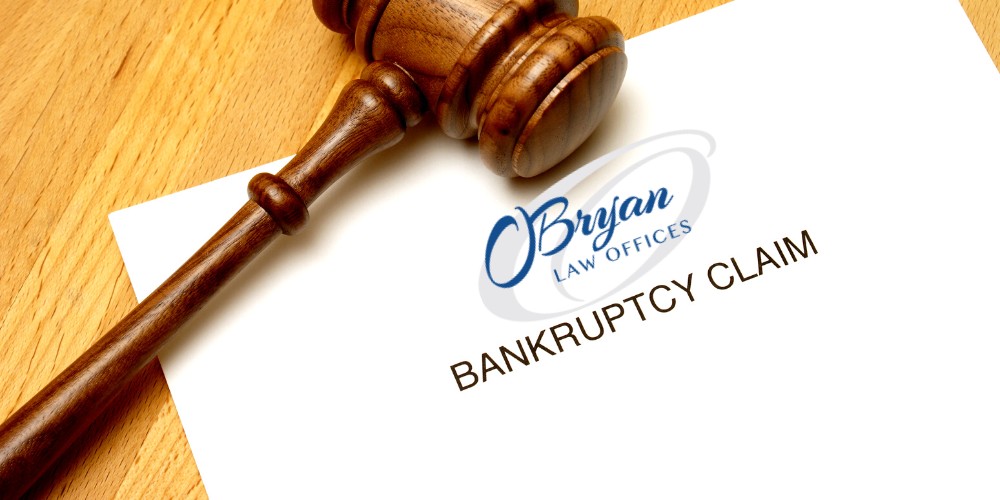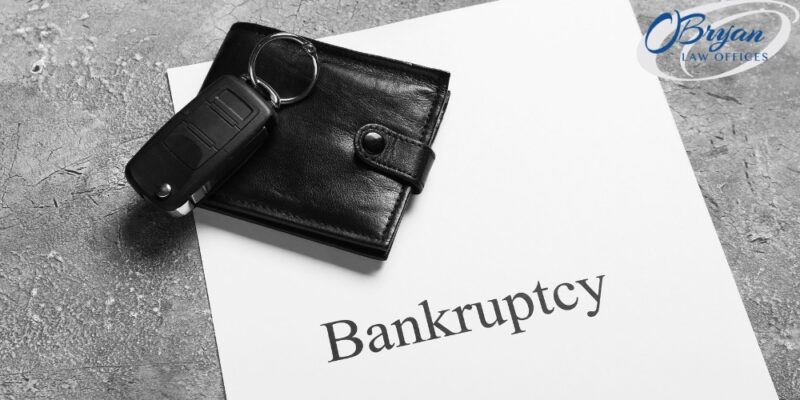Kentucky Bankruptcy Exemptions


Finances are one of the most important things in most people’s lives, as they touch basically every other aspect of your life. If debt is causing you to lose sleep at night, know that you have debt relief options. Our bankruptcy attorneys in Kentucky can tailor these options to fit your individual needs. For decades, the bankruptcy attorneys at O’Bryan Law Offices have provided debt relief to thousands of people through the bankruptcy process. We help them achieve an immediate fresh financial start to rebuild their life. If you’re in desperate need of debt relief, contact a Louisville bankruptcy attorney at our law firm today at 502-339-0222 for a free consultation.
What Are Bankruptcy Exemptions?
In bankruptcy, exemptions are basically laws or rules that let filers protect certain assets and properties from creditors. Some examples include your car or home. If you choose to file Chapter 7 bankruptcy in Kentucky, you can keep what is protected under Kentucky’s bankruptcy exemptions. If you file for Chapter 13 bankruptcy in Kentucky, however, the bankruptcy exemptions also help determine how much you pay your creditors through your Chapter 13 plan.
Why Are Exemptions so Important in Bankruptcy?
Bankruptcy exemptions allow those people to protect important property from the bankruptcy trustee. Without these protections, the trustee might seize that property and sell it to pay off your creditors. Oftentimes, this is why foreclosures happen.
Does Kentucky Let Filers Use Federal Bankruptcy Exemptions?
Each state, including Kentucky, has its own set of bankruptcy exemptions. However, many states allow you to choose between state and federal exemptions. This is the case in Kentucky. However, you cannot pick and choose certain Kentucky exemptions and certain federal law exemptions. You must choose between using only Kentucky exemptions or only federal exemptions.
If you choose the exemptions under Kentucky bankruptcy laws, you can still take advantage of federal non-bankruptcy exemptions that you qualify for. Examples of federal non-bankruptcy exemptions include federal and military retirement accounts, as well as veteran’s benefits and other tax-exempt retirement accounts.
Federal Bankruptcy Exemptions
Under federal law bankruptcy exemptions, you can protect a certain amount of property after you file under the Bankruptcy Code. According to federal bankruptcy exemptions, any exempt property cannot be sold by the trustee to pay your creditors in Chapter 7. In Chapter 13 bankruptcy, you’re not paying your creditors to keep your exempt property. Rather, you’re paying the value of the property or assets that you could not exempt under the Bankruptcy Code.
Below, we outline the current federal bankruptcy exemption amounts for each type of property. If you are filing jointly as a married couple, you can double these federal exemption amounts. If a specific amount isn’t listed, the entire property or asset is exempt.
The Homestead Exemption
Federal homestead exemptions protect the equity in your home. Equity is the value of your home versus what you owe on your mortgage. Currently, the federal homestead exemption is $27,900. If you have an underwater mortgage, you have no equity to exempt.
Personal Property Exemption
Personal property is any property that you own other than real estate properties. The current federal exemptions relating to personal property are listed below.
- $4,450 for a vehicle
- $1,875 for jewelry
- $14,875 in aggregate ($700 for each individual item) for household goods and furnishings, appliances, clothing, books, animals, crops, or musical instruments
- $2,800 for professional books, implements, or tools of trade
- Professionally prescribed health aids
- $14,875 in accrued interest, dividends, or loan value of an unmatured life insurance policy
Benefit and Support Exemptions
Federal exemptions also protect the money you receive as benefits or support:
- Child support, spousal support, alimony, or reasonably necessary maintenance
- Life insurance payments from a person you were dependent on, as is reasonably necessary
- Social security benefits, unemployment compensation and benefits, veteran’s benefits, public assistance, and disability or illness benefits, as well as crime victims compensation
Injury Recovery Exemptions
- $27,900 for personal injury payments
- Compensation for loss of future earnings or loss of earning capacity necessary for support
- Payment for the wrongful death of someone you depended on for support
- Compensation as a victim of a crime
Wildcard Exemption
A wildcard exemption is a specific amount that you can use to exempt any type of property, including a motor vehicle, real property, office equipment, and more. The current exemption is $1,475 plus up to $13,950 for any unused portion of your homestead exemption.
Retirement Accounts
- Retirement accounts exempt from taxation
- $1,512,350 for IRAs and Roth IRAs
Kentucky Bankruptcy Exemptions
Below, we outline the exemption amounts as outlined by Kentucky law. These state exemptions apply to individuals filing alone. If you are married and jointly filing with your spouse, most of these exemptions can be doubled. According to Kentucky state law, debtors can usually claim these formal exemptions if they live in Kentucky for at least two years before they filed bankruptcy.
Formal Exemptions
If you are filing a no-asset Chapter 7, you probably want to use the simple and straightforward Kentucky bankruptcy exemptions. Some highlights of these property protections include:
Retirement Accounts
Tax-free retirement savings accounts are fully exempt, and IRAs and Roth IRAs are exempt up to $1,362,800.
Homestead Exemptions
The homestead exemption in Kentucky protects up to $5,000 in equity for your permanent residence. The federal exemption is far more generous at $27,900. If you own a home and want to keep it, you will want to carefully consider the homestead exemption.
Equity is calculated by subtracting what you owe on your mortgage from the current value of your home. If you have $10,000 of equity in your home, state exemptions will only protect half of this equity. Federal exemptions, however, would protect the full amount. The Kentucky homestead exemption is comparatively low, which is one reason many homeowners choose to use the federal exemptions when filing bankruptcy in Kentucky.
Personal Property Exemptions
Unfortunately, personal property exemptions in Kentucky aren’t particularly high. If you want to protect your personal property, you may want to consider claiming federal bankruptcy exemptions instead. Along with the personal property exemptions, you can exempt a certain amount of your unused homestead exemption. We recommend speaking with an attorney before deciding whether to abide by state or federal law for your exemptions.
Kentucky law allows filers to exempt the following types of personal property:
- Clothing and household furniture up to $3,000 in aggregate value
- Farming tools, equipment, and livestock exemption up to $3,000 in aggregate value
- The full value of health aids prescribed by a medical professional
- Up to $2,500 of equity in one motor vehicle
Wildcard Exemptions
Kentucky laws shield up to $1,000 of otherwise non-exempt real or personal property. You could apply this exemption to cash in a bank account, a hunting cabin, or pretty much anything else.
If you plan to file anything other than a no-asset Chapter 7, your Kentucky bankruptcy lawyer will probably use the federal exemptions listed previously.
Informal Exemptions
If the written exemptions do not fully protect your property, a bankruptcy lawyer can often use some legal loopholes and expand them.
Can I Keep My Car if I File for Bankruptcy in Kentucky?
Many people who file for bankruptcy make keeping their car a top priority. For most people in tough financial situations, access to a car is a lifeline. The good news is that the system is designed to allow people to keep their car after filing bankruptcy. Some even file bankruptcy for the sole purpose of keeping their car. Debtors can stop foreclosure and stop car repossession through bankruptcy.
Before you ever file for bankruptcy, determine the status of your vehicle. Are you paying off a car loan? Are you leasing the car or do you own it? The status of the vehicle determines what you must do to keep it. Being up to date with car payments before you file for bankruptcy makes it easier to keep your car when you file either Chapter 7 or Chapter 13.
Can You File Bankruptcy and Keep Your House in Kentucky?
Most people who file for bankruptcy are able to retain their house. There are, however, two ways that you can lose your house when you file bankruptcy in Kentucky:
- If you fail to make your mortgage payments. This is no different than if you had not filed bankruptcy. Failure to make your mortgage payments will result in the mortgage company starting a Kentucky foreclosure process against you, which will ultimately result in the sale of your home through a courthouse auction. Although a Chapter 7 bankruptcy filing will temporarily delay that process as a result of the automatic stay, once this form of bankruptcy is complete, the creditors can start the foreclosure process or restart it if it has been stayed.
- If you have too much equity. Equity is what you would get for your house if you sold it, after paying off the mortgage, and any other debt against it, such as tax liens. If you file Chapter 7, you are only allowed a certain amount of equity that you can have in your house and still keep it.
If your equity exceeds $5,000, then the Chapter 7 bankruptcy trustee will sell your house and pay the excess equity to your creditors, after taking a fee for himself. Many people filing bankruptcy don’t have a lot of equity in their house, which means that if they are current on their payments, then their house is safe.
If you are not current on your mortgage payment or your equity exceeds $5,000, then you should consider filing a Chapter 13 bankruptcy petition. This will allow you to keep your house even if you are not current with the payments, so long as you have the ability to resume payments after you file.
Contact a Kentucky Bankruptcy Lawyer Today
You don’t need to suffer through the stress and anxiety of increasing debt issues. The team of bankruptcy lawyers at O’Bryan Law Offices have over 40 years of combined experience in representing clients for their bankruptcy cases. We can help you decide whether using Kentucky exemptions or federal exemptions would be best for your case. Give us a call today at (502) 400-4020 to schedule a free consultation with one of our Louisville bankruptcy attorneys.









